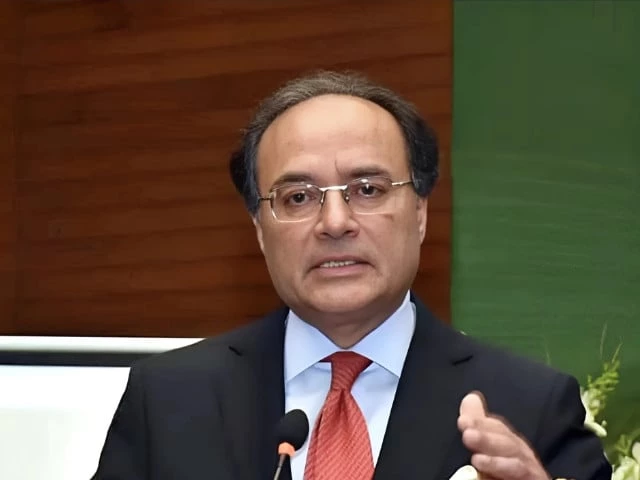Tax-to-GDP ratio to reach 13% in three years: Finance Minister
"We are working on digitalisation and reducing human intervention to ensure better compliance and efficiency"

Federal Finance Minister Muhammad Aurangzeb has announced that the government aims to increase Pakistan's tax-to-GDP ratio from the current 9-10% to 13% over the next three years.
He emphasied the importance of tax reforms as a critical part of the government's economic strategy.
Speaking at a press conference in Islamabad alongside Minister of State Ali Pervez and Federal Minister for Information and Broadcasting Attaullah Tarar, Aurangzeb stated that aligning the income and expenditure of taxpayers was essential for economic stability.
He noted that a tax amendment bill had already been presented in Parliament, which aims to reduce human intervention in the Federal Board of Revenue (FBR) through the use of technology, thus reducing corruption and harassment.
The Finance Minister also highlighted ongoing structural reforms, mentioning that the tax-to-GDP target is set to exceed 13.5% within three years.
"We are working on digitalisation and reducing human intervention to ensure better compliance and efficiency," he said.
Aurangzeb added that key measures would be taken to increase revenue, with an emphasis on streamlining the digitalisation process that began in March.
He assured that the government would focus on minimizing the burden on honest taxpayers while addressing tax leakage.
"Tax burden must be distributed fairly across all sectors of society," he said, emphasising that reforms will ensure that no single group shoulders an excessive tax load.
He mentioned that the government is reviewing the value chains of sectors such as sugar, beverages, and cement to address tax gaps.
State Minister Ali Pervez Highlights Inflation Control Efforts
In his remarks, Minister of State for Finance, Ali Pervez Malik, emphasised that inflation is the largest tax burden for ordinary citizens.
He noted that curbing inflation requires controlling fiscal deficits. "Inflation has decreased from 30-40% to around 5%, and its impact is now beginning to reach the general public," he said.
Pervez Malik further stated that the government is focused on ensuring that the tax burden is fairly distributed across all sectors, rather than being concentrated on any single group.
He added that there is now a robust system for collecting data on both taxpayers and tax defaulters.
The government has identified 190,000 individuals who should be included in the tax net.
"The goal is for wealthier individuals to contribute their fair share to the economy, and regular data exchanges will help in shaping policies accordingly," he said, outlining ongoing capacity-building efforts within the FBR to improve tax compliance.



















COMMENTS
Comments are moderated and generally will be posted if they are on-topic and not abusive.
For more information, please see our Comments FAQ